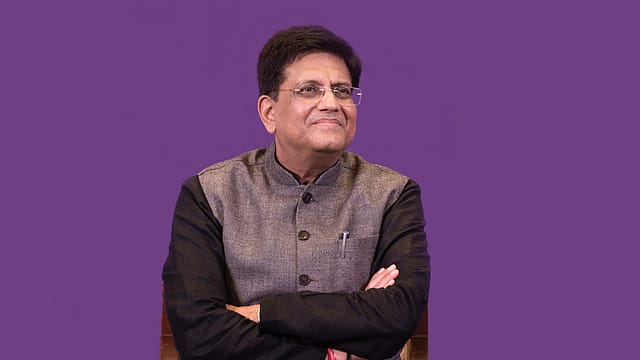India's electric mobility ready to fly, no need for newer subsidies: Piyush Goyal
ADVERTISEMENT

Union Minister of Commerce & Industry Shri Piyush Goyal today said that India's electric mobility is "absolutely ready to fly" and that companies do not need newer incentives or subsidies. Talking about higher EV adoption and expansion in the country, while discussing the challenges like battery charging and swapping stations, Goyal said the Centre was committed to addressing key challenges hindering the EV industry's growth.
"I can say that the electric mobility today is absolutely ready to fly. They do not need newer incentives or subsidies. The existing subsidies are available for some more time and will help them give that appropriate kick-start to the EV ecosystem. But on almost all sectors now, there are options and ideas available by which electric mobility can be successfully marketed. It's a good economic case to move from ICE to electric engine, and in some cases to plug-in hybrid," Piyush Goyal told the media.
He emphasised the need for battery-swapping facilities to coexist with charging infrastructure to accelerate the adoption of EVs. He said the adoption of EVs led by the creation of charging infrastructure should be “a people’s movement”.
The minister, speaking at the consultation meeting on the “Development of Battery Charging and Swapping Infrastructure” co-organised by the Confederation of Indian Industry (CII) and the Department for Promotion of Industry and Internal Trade (DPIIT), says he envisions battery swapping, charging infra at every petrol pump and CNG station.
"All petrol pumps, CNG stations, and similar facilities should be equipped with battery swapping and charging infrastructure. This would not only address the issue of vandalism currently affecting the sector but also ensure wide-spread availability of facilities without undue concentration in specific areas."
The minister said various ministries, including Heavy Industry, Power, Petroleum & Natural Gas, and Housing & Urban Affairs, should collaborate closely to ensure the effective implementation of battery swap stations.
Industry stakeholders highlighted the battery-swapping sector is projected to grow to $20 billion by 2030 and that there was a need for a level playing field with fixed-battery EV manufacturers when it comes to subsidies and incentives. "The industry has made technological advancements such as using robotics to replace batteries in as little as 135 seconds," they said.
While safety remains a concern, stakeholders emphasised the need for accountability and the establishment of well-defined standards by relevant authorities, such as the Bureau of Indian Standards (BIS).